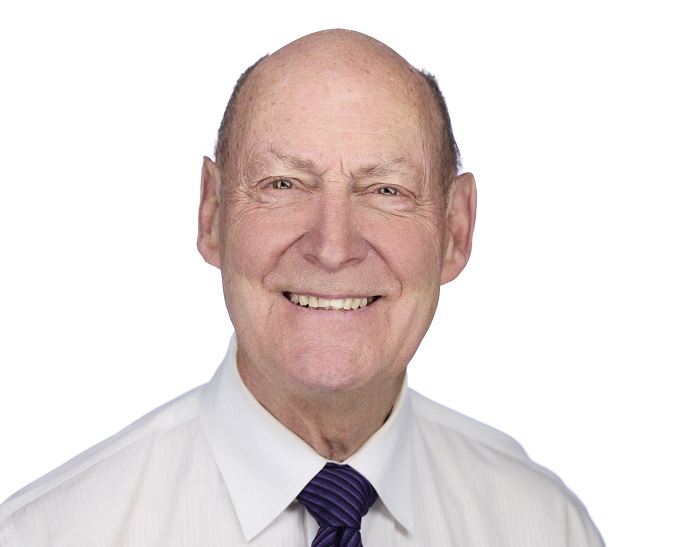PM Candidates Differ on Critical Issues
As Canada approaches its federal election on April 28, 2025, the three leading candidates for Prime Minister—Mark Carney (Liberal Party), Pierre Poilievre (Conservative Party), and Jagmeet Singh (New Democratic Party)—have articulated their positions on key issues facing the nation. Below is how the differ in their responses to several critical questions.
Mark Carney (Liberal Party) - of the 3 - Seeks to sustain the status quo with strategic economic adjustments.
Differentiator: Pragmatic centrism with a globalist, institutional approach.
Carney positions himself as a stabilizing figure focused on restoring trust in institutions and Canada’s global standing. His emphasis is on long-term investment—in innovation, climate transition, and public services—backed by evidence-based policy and economic stewardship. He blends support for traditional industries with forward-looking commitments to technology and climate resilience, appealing to moderate and urban voters.
Pierre Poilievre (Conservative Party) - of the 3 - Advocates for overdue change, with affordability at the core.
Differentiator: Economic freedom and national sovereignty through deregulation and smaller government.
Poilievre stands out as the candidate pushing for a sharp break from current federal policies. He champions lower taxes, reduced bureaucracy, private-sector solutions, and strong border controls. His focus is on individual freedom, affordability, and domestic control—appealing to voters frustrated with the status quo, especially in Western Canada and suburban areas.
Jagmeet Singh (New Democratic Party) - of the 3 - Pursues a more socially responsible and equitable society.
Differentiator: Equity-driven transformation through social justice and public investment.
Singh sets himself apart with a strong social justice lens, prioritizing income equality, Indigenous rights, mental health care, and affordable housing. His policies are designed to redistribute opportunity and tackle systemic inequities, particularly through public services and stronger protections for workers and marginalized communities.
Getting Specific on Essential Issues
- National Unity & Leadership
- Mark Carney (Liberal Party): Emphasizes the importance of fostering national unity by addressing regional disparities and promoting inclusive policies that resonate across all provinces and territories.
- Pierre Poilievre (Conservative Party): Advocates for a "Canada First" approach, focusing on strengthening national sovereignty and addressing internal divisions by promoting policies that prioritize Canadian interests.
- Jagmeet Singh (New Democratic Party): Highlights the need to bridge regional divides through social programs that support marginalized communities, aiming to build trust in federal institutions by prioritizing the needs of everyday Canadians.
- Economic Growth & Competitiveness
- Mark Carney (Liberal Party): Proposes targeted investments in technology and innovation sectors to boost productivity and ensure Canada's competitiveness in the global economy.
- Pierre Poilievre (Conservative Party): Plans to cut personal income taxes, aiming to stimulate economic growth by increasing disposable income and encouraging investment.
- Jagmeet Singh (New Democratic Party): Focuses on supporting small and medium-sized enterprises (SMEs) through grants and subsidies to foster innovation and create jobs, ensuring prosperity is shared across all regions.
- Affordability & Housing
- Mark Carney (Liberal Party): Aims to double the pace of home building in Canada to address the housing crisis and improve affordability.
- Pierre Poilievre (Conservative Party): Proposes selling off 15% of under-utilized federal buildings to convert them into affordable housing and implementing measures to increase housing supply by reducing bureaucratic red tape.
- Jagmeet Singh (New Democratic Party): Commits to building over 100,000 affordable housing units on federal lands and implementing national rent control measures to protect tenants.

 No need to Register. Just click in No need to Register. Just click in
https://us02web.zoom.us/j/84258596166?pw..
- Energy Transition & Climate Resilience
- Mark Carney (Liberal Party): Advocates for a balanced approach that supports traditional energy industries while investing in renewable energy projects to facilitate a transition to a low-carbon economy.
- Pierre Poilievre (Conservative Party): Plans to repeal the carbon tax and promote green technology initiatives, including carbon capture and storage, to address climate change without imposing additional taxes.
- Jagmeet Singh (New Democratic Party): Proposes significant investments in renewable energy infrastructure and the implementation of stricter environmental regulations to reduce carbon emissions and prepare for climate-driven disasters.
- North American Relations & Trade
- Mark Carney (Liberal Party): Intends to negotiate a new economic and security relationship with Europe to address trade tensions and protect Canada's economic sovereignty.
- Pierre Poilievre (Conservative Party): Advocates for retaliatory measures against U.S. tariffs and seeks to diversify trade partnerships to reduce reliance on the American market.
- Jagmeet Singh (New Democratic Party): Emphasizes the importance of fair trade agreements that protect Canadian workers and industries, proposing policies that prioritize domestic interests in international trade negotiations.
- Foreign Policy & Global Relevance
- Mark Carney (Liberal Party): Supports a multilateral approach to foreign policy, aiming to strengthen alliances and promote democratic values on the global stage.
- Pierre Poilievre (Conservative Party): Focuses on reinforcing national sovereignty and taking a firm stance in international relations to protect Canada's interests.
- Jagmeet Singh (New Democratic Party): Advocates for a foreign policy centered on human rights and social justice, aiming to enhance Canada's global reputation as a defender of democratic values.
- National Security & Sovereignty
- Mark Carney (Liberal Party): Plans to invest in cybersecurity measures and strengthen intelligence agencies to protect against foreign interference and ensure the integrity of democratic institutions.
- Pierre Poilievre (Conservative Party): Proposes increasing defense spending and enhancing border security to safeguard national sovereignty.
- Jagmeet Singh (New Democratic Party): Emphasizes the need for transparent governance and public accountability to build resilience against foreign interference and strengthen democratic institutions.
- Healthcare & Mental Health
- Mark Carney (Liberal Party): Advocates for increased federal funding to provinces to address healthcare system challenges, including long wait times and workforce shortages.
- Pierre Poilievre (Conservative Party): Supports expanding private sector involvement to alleviate pressure on the public healthcare system and reduce wait times.
- Jagmeet Singh (New Democratic Party): Proposes implementing a national pharmacare program and increasing funding for mental health services to ensure comprehensive healthcare access for all Canadians.
- Education & Workforce Preparedness
- Mark Carney (Liberal Party): Plans to invest in education and training programs focused on technology and innovation to prepare students and workers for future job markets.
- Pierre Poilievre (Conservative Party): Advocates for apprenticeship programs and partnerships with industries to equip workers with skills needed in trades and energy sectors.
- Jagmeet Singh (New Democratic Party): Proposes making post-secondary education more affordable and expanding access to vocational training to prepare the workforce for jobs in clean energy and technology sectors.
10. Indigenous Reconciliation & Social Equity
- Mark Carney (Liberal Party): As of April 2, 2025, during a campaign stop in Winnipeg, Carney did not make specific announcements regarding Indigenous policies. However, the Liberal Party's 2024 budget included approximately $9 billion for Indigenous communities, targeting areas such as child and family services reform, education, healthcare, mental health, and housing.
- Pierre Poilievre (Conservative Party): Poilievre has proposed financial incentives for First Nations to support water and resource projects. However, these proposals have faced criticism from some Indigenous leaders who argue that they may not adequately address the broader needs and rights of Indigenous communities.
- Jagmeet Singh (New Democratic Party): The NDP has committed to implementing the Calls for Justice from the National Inquiry into Missing and Murdered Indigenous Women and Girls. The party also played a central role in advocating for the Red Dress Alert System, which was included in the 2024 budget under the Liberal-NDP Supply and Confidence Agreement.
11. Construction of a East-West Canada Pipeline and Bill C-69
A symptom of the fracture in Canada between Alberta in the west and the federal government is the construction of a pipeline that would enable the transmission of western oil and gas to Canada's eastern provinces. The construction of the pipeline has been a contentious issue, highlighting regional tensions and differing political perspectives.
Central to this debate is Bill C-69, enacted in 2019, which overhauled Canada's environmental assessment process for major infrastructure projects. The Impact Assessment Act, established a framework for evaluating the environmental, social, and economic impacts of designated projects, including pipelines. Critics argue that the legislation creates regulatory uncertainties that could deter investment and hinder the approval of new pipeline projects. Conversely, proponents contend that it ensures thorough assessments and upholds environmental and community standards.
Would the pipeline be permitted under proposed legislation C-69?
Mark Carney (Liberal Party):
-
- Pipeline Stance: Prime Minister Carney has expressed support for building pipelines to reduce Canada's reliance on foreign oil imports. He emphasized the need to expedite resource projects but has been vague about including the proposed oil pipeline from Alberta to Eastern Canada.
- Bill C-69 Stance: Carney intends to maintain Bill C-69, viewing it as essential for comprehensive environmental assessments. This position has faced criticism from industry groups who argue that the bill hampers pipeline development.
Pierre Poilievre (Conservative Party):
-
- Pipeline Stance: Poilievre advocates for creating a "Canada First National Energy Corridor" to facilitate the rapid approval and construction of infrastructure such as pipelines. He asserts that this approach will bolster Canada's energy independence and economic strength.
- Bill C-69 Stance: He has pledged to repeal Bill C-69, labeling it as an "anti-energy" law that impedes resource development.
Jagmeet Singh (New Democratic Party):
-
- Pipeline Stance: Singh prioritizes the development of an east-west clean electricity network over new pipeline projects. While not entirely opposed to pipelines, he emphasizes stringent criteria, including community acceptance, environmental protection, job creation, and Indigenous consultation.
- Bill C-69 Stance: Singh supports robust environmental assessments and has not indicated intentions to repeal Bill C-69, aligning with his focus on environmental protection and community engagement.

Editor@KEInetwork.net
|




 No need to Register. Just click in
No need to Register. Just click in